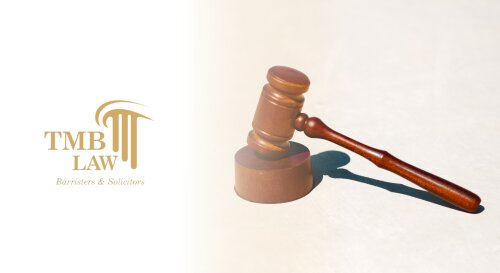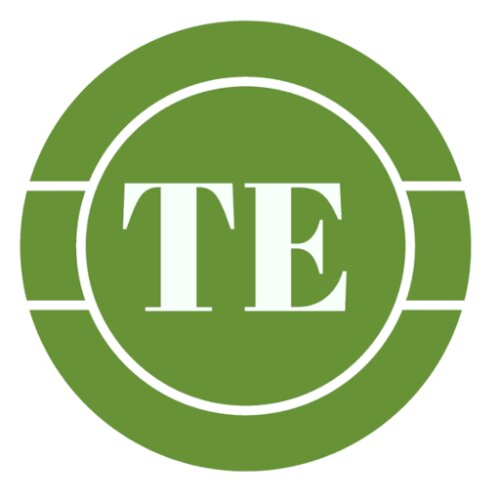Best Land Use & Zoning Lawyers in Oshawa
Share your needs with us, get contacted by law firms.
Free. Takes 2 min.
Free Guide to Hiring a Real Estate Lawyer
List of the best lawyers in Oshawa, Canada
About Land Use & Zoning Law in Oshawa, Canada
Land Use & Zoning Law in Oshawa, Canada is designed to regulate how land and buildings are utilized within the city. The City of Oshawa, like many municipalities, uses zoning laws to control development, safeguard the environment, and ensure that land use is compatible with the surrounding community. Zoning laws categorize areas into zones (e.g., residential, commercial, industrial) and stipulate what activities and structures are permitted within each zone. Understanding these regulations is crucial for developers, property owners, and residents alike.
Why You May Need a Lawyer
Engaging a lawyer for Land Use & Zoning in Oshawa can be essential in various situations, such as:
- Seeking approval for a development project or building permit.
- Dealing with zoning violations or disputes with neighbors.
- Appealing zoning decisions made by local government bodies.
- Understanding the implications of zoning changes on property value and use.
- Navigating complex environmental regulations and requirements.
- Engaging in real estate transactions that may be affected by zoning laws.
Local Laws Overview
In Oshawa, key aspects of Land Use & Zoning laws include:
- Zoning By-Laws: These regulations define the permitted uses, restrictions, and development standards for different zones within the city.
- Official Plan: This document outlines the long-term vision for land use and development in Oshawa and guides zoning decisions.
- Site Plan Control: Certain developments require a detailed site plan approval to ensure they meet municipal standards and integrate well with surrounding areas.
- Minor Variances: Property owners can apply for minor variances to seek relief from specific zoning requirements under certain conditions.
- Committee of Adjustment: This local body hears applications for minor variances and land use permissions not strictly conforming to zoning by-laws.
Frequently Asked Questions
What is zoning?
Zoning is a regulatory tool that municipalities use to control land use and development. It divides the city into different zones (residential, commercial, industrial, etc.) and sets rules for what can be built in each zone.
How do I find out what my property is zoned for?
You can check the zoning classification of your property through the City of Oshawa’s official website or contact the Planning Department for detailed information.
Can I change the zoning of my property?
To change the zoning, you must submit a zoning by-law amendment application to the City of Oshawa’s Planning Department. The process involves public consultations and various assessments.
What is a minor variance?
A minor variance allows property owners to deviate slightly from zoning by-laws. Applications are reviewed by the Committee of Adjustment, which decides whether to grant the variance based on specific criteria.
Can I build a second dwelling unit on my property?
Secondary dwelling units may be permitted, but you must comply with zoning by-laws and building codes. A lawyer can help you understand the requirements and through the application process.
What are the penalties for zoning violations?
Penalties can include fines, orders to stop construction, or even orders to remove non-compliant structures. It's important to seek advice from a lawyer if you face a zoning violation.
What is site plan control?
Site plan control is a process that requires developers to submit detailed plans showing how a development will be laid out, including landscaping, parking, and access points, to ensure it complies with municipal standards.
How is the Official Plan different from zoning by-laws?
The Official Plan sets out the city's long-term vision and goals for land use and development, while zoning by-laws are regulatory tools that implement the Official Plan by defining specific land use permissions and restrictions.
Who enforces zoning laws in Oshawa?
The enforcement of zoning laws is typically handled by the City's Planning Department and By-law Enforcement Office.
How do environmental regulations affect land use in Oshawa?
Environmental regulations can impose additional restrictions on land use to protect natural resources and promote sustainable development. These may include requirements for environmental impact assessments and adherence to specific environmental standards.
Additional Resources
For more information and assistance, consider contacting:
- City of Oshawa Planning Department: Provides information on zoning by-laws, site plan control, and development applications.
- Durham Region Planning Division: Offers insights into regional land use policies and environmental regulations.
- Ontario Ministry of Municipal Affairs and Housing: Provides guidance on provincial zoning and planning legislation.
- Law Society of Ontario: Offers resources to find qualified land use & zoning lawyers.
- Oshawa Chamber of Commerce: Can provide insights on how zoning laws affect local businesses and development.
Next Steps
If you need legal assistance in Land Use & Zoning in Oshawa, follow these steps:
- Identify the specific issue or question you need help with.
- Gather relevant documents such as property deeds, zoning notices, and any correspondence with local authorities.
- Contact a qualified lawyer specializing in Land Use & Zoning law in Oshawa.
- Schedule a consultation to discuss your case and understand your legal options.
- Follow your lawyer's advice and participate actively in the process to achieve the best possible outcome.
Lawzana helps you find the best lawyers and law firms in Oshawa through a curated and pre-screened list of qualified legal professionals. Our platform offers rankings and detailed profiles of attorneys and law firms, allowing you to compare based on practice areas, including Land Use & Zoning, experience, and client feedback.
Each profile includes a description of the firm's areas of practice, client reviews, team members and partners, year of establishment, spoken languages, office locations, contact information, social media presence, and any published articles or resources. Most firms on our platform speak English and are experienced in both local and international legal matters.
Get a quote from top-rated law firms in Oshawa, Canada — quickly, securely, and without unnecessary hassle.
Disclaimer:
The information provided on this page is for general informational purposes only and does not constitute legal advice. While we strive to ensure the accuracy and relevance of the content, legal information may change over time, and interpretations of the law can vary. You should always consult with a qualified legal professional for advice specific to your situation.
We disclaim all liability for actions taken or not taken based on the content of this page. If you believe any information is incorrect or outdated, please contact us, and we will review and update it where appropriate.










